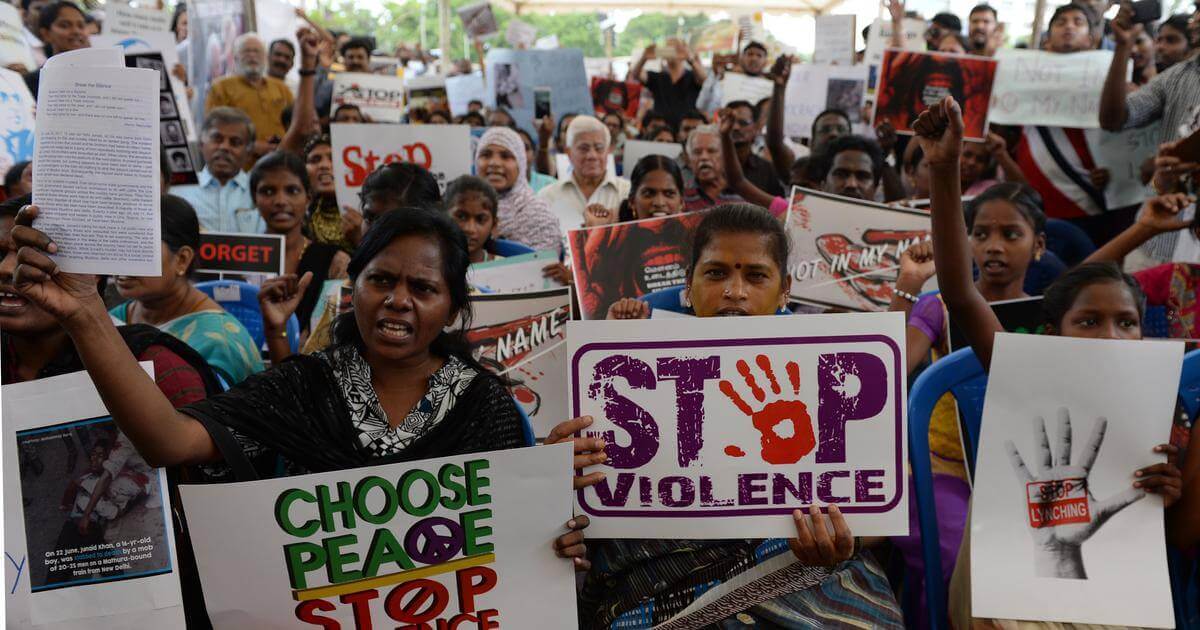For the second year in a row, the United States Commission on International Religious Freedom (USCIRF) has urged the US State Department to designate India a ‘Country of Particular Concern’ (CPC), for violations of religious freedoms in 2020.
The list also includes 13 other nations: Russia, Syria, Vietnam, Burma (Myanmar), China, Eritrea, Iran, Nigeria, North Korea, Pakistan, Saudi Arabia, Tajikistan, and Turkmenistan. The body said that the CPC label was due to the countries’ governments engaging in or tolerating “systematic, ongoing, and egregious violations.”
The USCIRF had recommended putting India on the list of CPCs in its report last year as well. Arguing that religious freedom under Prime Minister Narendra Modi had taken “a drastic turn downward,” the panel had called for targeted sanctions against Indian government agencies and individual officials responsible for severe violations. At the time, however, the US State Department did not follow through on the panel’s recommendation. India had also fiercely rejected the observations, labelling the report as “biased and tendentious.”
The report included specific concerns about the Citizenship Amendment Act (CAA), the proposed National Register for Citizens (NRC), anti-conversion laws, and the situation in Jammu and Kashmir. The panel also accused the ruling Bharatiya Janata Party (BJP) of having “allowed nationwide campaigns of harassment and violence against religious minorities to continue with impunity, and engaged in and tolerated hate speech and incitement to violence against them.”
In its 2021 report, the USCIRF said that conditions for religious freedoms in India “continued their negative trajectory” in 2020. “The government, led by the Bharatiya Janata Party (BJP), promoted Hindu nationalist policies resulting in systematic, ongoing, and egregious violations of religious freedom,” it added. The document further highlighted problematic incidents and policies such as the Hindu-Muslim mob violence in Delhi in February, the acquittal of all those involved in Babri Masjid’s demolition, efforts to prohibit interfaith marriages or relationships using the false narrative of “forced conversion,” and increasing restrictions on the operation of civil society organisations. It also noted that disinformation and hateful rhetoric often targeted at religious minorities was seen at the beginning of the COVID-19 outbreak as well. In addition, the document spoke of the government’s crackdown on dissent and attempts to detain and accuse people of sedition “for their actual or perceived criticism” of the government’s (in)actions.
Though last year’s report drew dissensions from three USCIRF commissioners, this year, there was only one. Though Commissioner Johnnie Moore said that India had no place on the CPC list, he acknowledged that the country seemed to be at a “crossroads.” “Its democracy—still young and freewheeling—is creating through the ballot box difficult challenges for itself. The answer, of course, is for India’s institutions to draw upon their rich history to protect their values. India must always resist allowing political and intercommunal conflict to be exacerbated by religious tensions. India’s government and people have everything to gain and absolutely nothing to lose from preserving social harmony and protecting the rights of everyone. India can. India must,” he added.
You can read the full report here.

